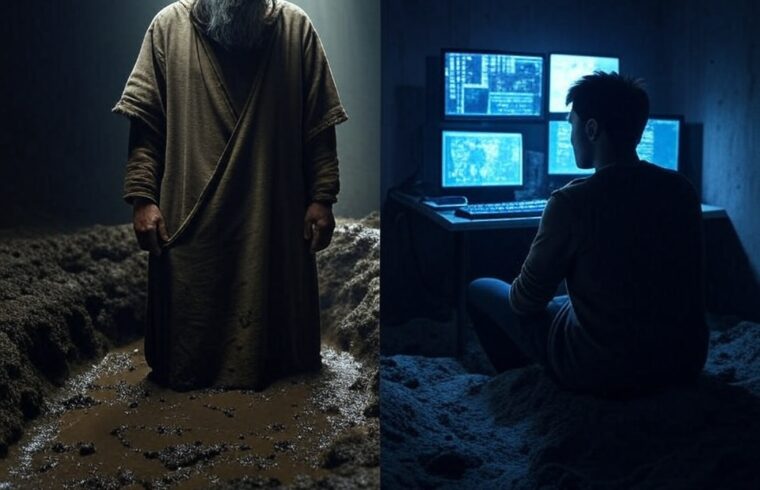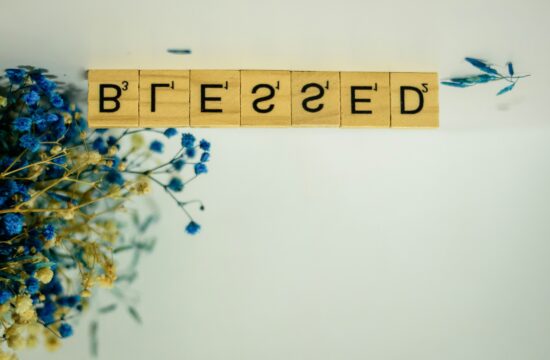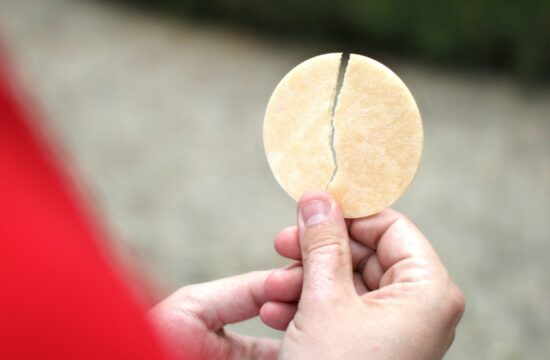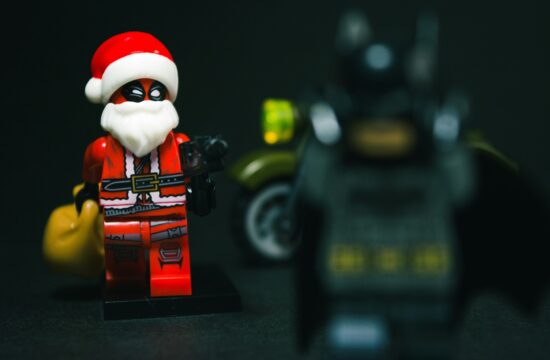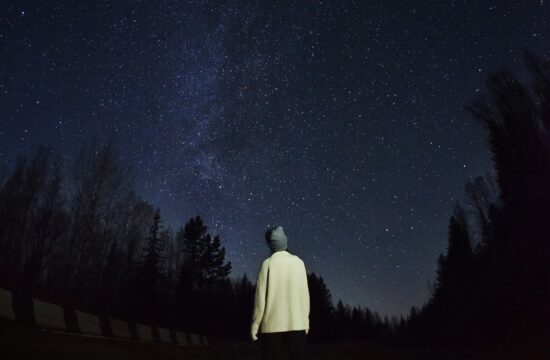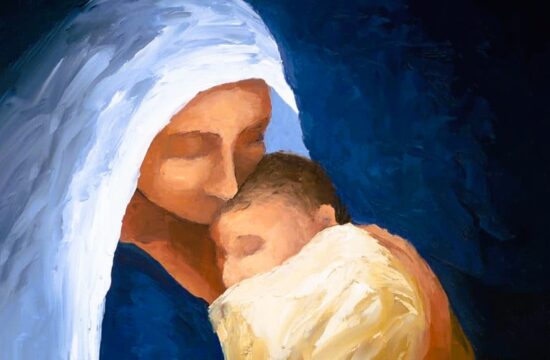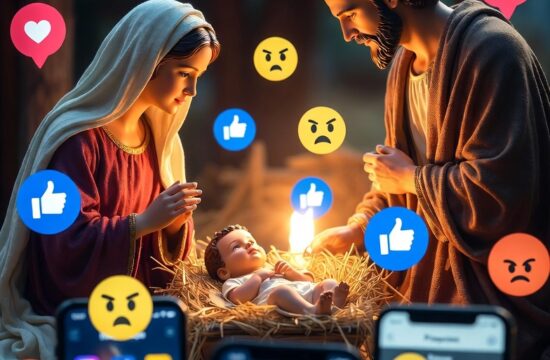When we think about the Cold War—the standoff that had the whole world holding its breath—we get these big names in our heads: Ronald Reagan. Mikhail Gorbachev. Maybe even Pope John Paul II. But have you ever heard the name Stanislav Petrov? Probably not. His name isn’t in most history books, there are no statues of him anywhere. Even though this ordinary man sitting in a Soviet bunker in 1983 saved the world from nuclear disaster. No title, no power, just a man, a blinking computer screen, and a decision that went against everything he was supposed to do.
Thank you for taking the time to read this homily for the 20th Sunday in Ordinary Time (August 17, 2025). Your support means a great deal to me, and I’m deeply grateful for the many who share these messages with their friends, families and social media followers. If you’ve found meaning in these words, I’d be grateful if you’d share them with others who might benefit.
And for those who prefer listening, you can find the audio version on SoundCloud HERE or subscribe to the podcast on iTunes HERE. Your comments, messages, and the way you’ve embraced these homilies continue to inspire me. Sincerely in Christ -Father Jim
On September 26, 1983 as he was filling in for a sick colleague monitoring the Soviet computers his bunker lit up with a warning—five American missiles were supposedly on their way. The protocol was clear. Detection meant immediate retaliation. No debates, no verification – launch everything. He had minutes to call it in, minutes before the Soviet Union launched a counterattack, minutes before the world changed forever. Imagine that: the fate of the entire world, hanging on your next move. Every alarm, every regulation, every bit of training told him to follow orders and report the attack. But something didn’t add up. Petrov went with his gut. He called it a false alarm. He was right. The “attack” was sunlight reflecting off clouds – fooling Soviet satellites. Petrov had just prevented nuclear holocaust with nothing but intuition. You’d think he’d be a hero… It was a computer glitch—not World War III.
So, what did Petrov get for saving the world? Not medals. Not a promotion. He got interrogated, demoted, and basically erased from the story. The system he saved punished him because he didn’t follow the script.
That story came to mind because it illuminates something profound about today’s readings. Sometimes doing the right thing—sometimes following the truth—means standing utterly alone. Sometimes it means being thrown into a cistern.
In our first reading from Jeremiah, we encounter a prophet who refuses to tell comfortable lies. The princes of Judah come to King Zedekiah with their complaint: “This man ought to be put to death. He’s demoralizing our troops! He’s weakening our resolve!” What was Jeremiah’s crime? He spoke God’s truth: Jerusalem would fall to Babylon. Surrender was the only path to survival. The nobles didn’t want to hear it. They wanted a prophet who would bless their plans, who would tell them God was on their side no matter what they did. When Jeremiah refused to be that prophet, they threw him into a muddy cistern to die.
Think about that image for a moment. A cistern—a deep pit meant to hold water, now holding only mud. They lower God’s prophet down into this hole, where he sinks into the mire. No food. No water. Just darkness and mud and the slow approach of death. This is what speaking God’s truth earned him.
And then we come to today’s Gospel, where Jesus—the Prince of Peace, the one the angels announced would bring “peace on earth”—says something that should shock us: “Do you think I have come to establish peace on the earth? No, I tell you, but rather division.” Wait, what? Division? From the Prince of Peace?
Jesus goes on: “From now on a household of five will be divided, three against two and two against three; a father will be divided against his son and a son against his father, a mother against her daughter and a daughter against her mother.”
We tend to skip over these hard words. We prefer the Jesus who says “Come to me all you who are weary” and “Let the children come to me.” We’re comfortable with the Good Shepherd, less so with the one who brings a sword of division. But here’s what Jesus is telling us: when you truly follow Him, when you genuinely live according to His teachings, you will create division. Not because you’re trying to be divisive, but because the Gospel challenges every form of comfortable compromise with the world’s values.
We live in an age that prizes harmony above truth. “Can’t we all just get along?” becomes not just a plea but a highest virtue. And in pursuit of this false peace, we’ve learned to stay quiet. We’ve mastered the art of the comfortable compromise.
Think about how we’ve changed even in recent years. Politicians routinely say, “Personally, I believe life begins at conception, but I don’t think my faith should influence my policy decisions.” We nod along as if this makes sense, as if one’s deepest convictions about human dignity should be locked away in some private compartment, irrelevant to public life.
We’ve created a Christianity so lukewarm, so eager not to offend, that it offends no one—except God. We’ve become masters at watering down our faith until it’s so diluted it couldn’t possibly create division because it stands for nothing distinctive at all.
Remember just a few years ago? When we were told it was too dangerous to gather for Mass, but perfectly safe to shop at Home Depot? When liquor stores were “essential” but the Eucharist was not? And how quickly did we comply? How readily did we accept that the Holy Sacrifice of the Mass was less essential than buying mulch or vodka?
I’m not saying there weren’t legitimate health concerns. But notice how easily we accepted our relegation to “non-essential” status. Notice how little division it caused. Previous generations of Christians faced lions rather than miss the Eucharist. We faced… inconvenience. And we folded.
This is the comfortable Christianity that creates no division because it challenges nothing. This is the faith that no one throws into a cistern because it threatens no one’s power or comfort or assumptions. But this is not the faith of Jeremiah. And it’s not the faith Jesus calls us to.
Stanislav Petrov sat in that bunker and faced a terrible choice: follow protocol and possibly end the world, or trust his judgment and face the consequences. He chose to stand alone with the truth. It cost him everything except his integrity.
Jeremiah stood before the princes of Judah and faced his choice: tell them the comfortable lie they wanted to hear, or speak God’s uncomfortable truth. He chose the truth. It landed him in a cistern.
Every single one of us faces these choices, perhaps not as dramatically, but just as really. When your workplace celebrates values that contradict the Gospel, do you speak up or stay silent? When your family gathering turns to mocking the Church’s teachings, do you defend the faith or keep the peace? When society tells you that your beliefs about life, marriage, and human dignity are outdated and must be kept private, do you comply or resist?
The cistern is still there. Oh, it looks different now. Today’s cistern might be social media mockery. It might be being passed over for promotion. It might be your own children looking at you with disappointment because you won’t celebrate their choices that contradict God’s plan. It might be loneliness as friends drift away because you’ve become “too religious.”
But here’s what we must understand: the division Jesus speaks of isn’t the goal—it’s the inevitable result of living truth in a world built on comfortable lies. Jesus doesn’t want us to be divisive. He wants us to be faithful. The division comes because faithfulness challenges unfaithfulness, truth exposes lies, and light reveals what darkness wants to hide.
Think again of Petrov in that bunker. He could have followed protocol. No one would have blamed him—he was just doing his job, following orders. But sometimes following orders means participating in grave evil. Sometimes keeping the peace means enabling destruction.
This is why Jesus says He comes to bring fire to the earth. Not the fire of destruction, but the fire of purification. The fire that burns away the comfortable compromises, the lukewarm faith, the easy lies we tell ourselves about being “good enough” Christians.
We are living through our own time of testing. The cisterns are being prepared for those who speak uncomfortable truths. The pressure to conform, to stay quiet, to go along to get along has never been more intense. But we follow a Lord who was crucified for refusing to compromise with the powers of His day. We stand in the tradition of prophets like Jeremiah who chose the cistern over the lie. We are heirs to martyrs who chose lions over incense to false gods.
So what will we choose? Will we trade away every distinct mark of our faith just to keep the peace, to blend in, to avoid making waves? Will we be remembered as the generation that stood for nothing—because we were too afraid to stand apart?
Or will we dare to be like Jeremiah, willing to speak the truth even if it lands us in the mud? Like Stanislav Petrov, alone in the bunker of conscience, refusing to push the deadly button, even when it costs us everything? Like Christ Himself, who loved us enough to choose the cross over comfort?
The easy road is always there. Stay silent. Go along. Let your faith become another private opinion, harmless and hidden. Tell yourself that being “nice” is enough. But Christ never promised ease—He promised truth. He promised His presence. And yes, He promised us the cross.
So where have we settled for comfort instead of courage? Where have we chosen not to risk the cistern, not to speak the word that needs to be spoken? These readings force us to look in the mirror.
And yet—here’s the hope: the cistern is never the end. Jeremiah was lifted out. Even in the dark, God provided. Even standing alone, we are never truly abandoned. Stanislav Petrov died in obscurity. But the truth came out. The world remembers. God remembers more.
And we have even greater promises. “I am with you always,” Jesus says. We have the Eucharist—Christ Himself, who entered the pit and conquered it. We have the saints, who chose the hard road and shine now with glory. The fire is already burning. The division is already here. The only real question is: Will we shrink from it? Or will we have the courage of the prophets, the quiet heroism of Petrov, and the faithfulness of Christ?
The cistern waits for those who speak the truth. But so does resurrection. So does glory. May we be among those who choose the hard, beautiful path. May we choose Christ over comfort—every single time.

